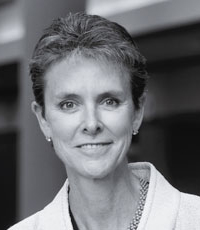Search the latest and greatest job opportunities in sport

The best way to overcome barriers?
First published on LEADERS Magazine
In 2012, we celebrated the 40th anniversary of Title IX a law that requires gender equity for males and females in every educational program or activity that receives federal funding, including sports. Four decades later, research affirms that providing sport in combination with educational opportunities has reaped huge benefits for female athletes, including a greater likelihood that they will graduate from high school, earn postgraduate degrees, and make more money. In fact, a 2001 survey of executive women by MassMutual Financial Group and Oppenheimer Funds revealed that 81 percent of them played sports growing up and 69 percent said sports helped them to develop leadership skills that contributed to their professional success.
Barriers remain
The fact remains, women around the world still face formidable constraints: lack of schools and access to technology; legal prohibitions; social conventions that inhibit female participation in the workforce; government restrictions on small businesses and outdated approaches to risk and credit; and other social, legal, cultural, and financial norms and practices that make it difficult for women to go to school, seek employment freely, benefit from their earnings or manage their lives in other ways.
Gender equity has long been a serious and smart business. More corporations should invest in the enormous untapped potential of women, which is the most significant economic growth engine of the next decade and beyond.
It’s all about the team – in sports and in business
Before there was Beth Brooke – Ernst & Young Global Vice Chair of Public Policy and a mainstay on the Forbes annual list of the World’s 100 Most Powerful Women – there was Beth Brooke, basketball player on the Big Ten Purdue University intercollegiate team. “It’s hard to overemphasize what being an athlete has done for my career,” she says. “Certainly it turned me into a team player at an early age – and in business, that’s pretty much everything.”
The platform of sports as a springboard to corporate leadership is one of her passions as she travels the world championing women’s personal and professional advancement. She learned this firsthand as one of the “firsts” throughout her career where she had very few female role models as she climbed the corporate ladder.
Speaking the language
From day one, she says, being an athlete gave her an innate ability to speak the language of the men who surrounded her in the-then Big Eight accounting world she joined in the early 1980s. While her job performance was getting her noticed, she never felt intimidated when working alongside male higher-ups in the C-suite. “Sports gave us a language in common,” she explains. “I was very comfortable in ‘their’ world because we had the common bond of athlete-to-athlete. I loved basketball, softball, golf, talking about sports – it was very genuine and heartfelt on my part.” She recalls with a laugh at one point forming both an Ernst & Young co-ed softball team and a corporate softball league while at the Indianapolis office. “Both were great for building relationships and it was fun for me, too.”
The bond over athletics allowed her to relate directly to powerful men, serving as a way to respond and connect with them on a genuinely human level. “You understand the pressure, you know what training and focus it takes to compete, you feel the confidence and hard work required to win,” she explains. “Countries that don’t support or block women from competing in sports are doing their economies a great disservice by neglecting women’s training as athletes – and that carries implications for building a new generation of business leaders. Women are not just a demographic segment; they are the largest emerging market in the world. Over the next decade, women carry the potential to wield enormous influence over politics, sports, business, and the global economy.“ To this end, Beth notes that she is thrilled that the London Olympics has set a new record for gender equity – with all 205 participating nations sending at least one woman to compete.
Going the distance
Another bonus from sports that helps Beth cope with the demands of her life as Global Vice Chair is the capacity for endurance. Long hours, days spent on an airplane getting from one time zone to the next, and decisions that need to be made quickly – any of these can take its toll. “I find that my athletic training has prepared me mentally for the corporate marathon,” she says. “Sure, I get tired, but I am familiar with the feeling of exhaustion, so I know how to stay focused even when I am physically drained. That’s what sports trains you to do, and staying power on the road and in the office is definitely a requirement for anyone in a global business profession today,” she says.
Ultimately, sports is all about attitude. Beth credits her skills as an athlete with instilling in her the confidence and mindset that she can “do anything.” Her career record, which, in addition to her seat on the executive board of one of the Big Four, includes a two-year stint in the Clinton Administration as well as service on numerous boards committed to women entrepreneurs, public policy, and economic growth is proof enough. She looks forward to continuing to make a difference as she sees her work at Ernst & Young “as a platform to build a global community and make real change for women in the corporate world.”
Beth Brooke is responsible for shaping Ernst & Young’s position on public policy and has become one of the profession’s most prominent voices in the public policy arena. Brooke is regularly named by Forbes magazine as one of the world’s 100 most powerful women. Brooke has a B.S. degree from Purdue University where she played women’s intercollegiate basketball.
Copyright © 2013 LEADERS Magazine, Inc.
Search the latest and greatest job opportunities in sport